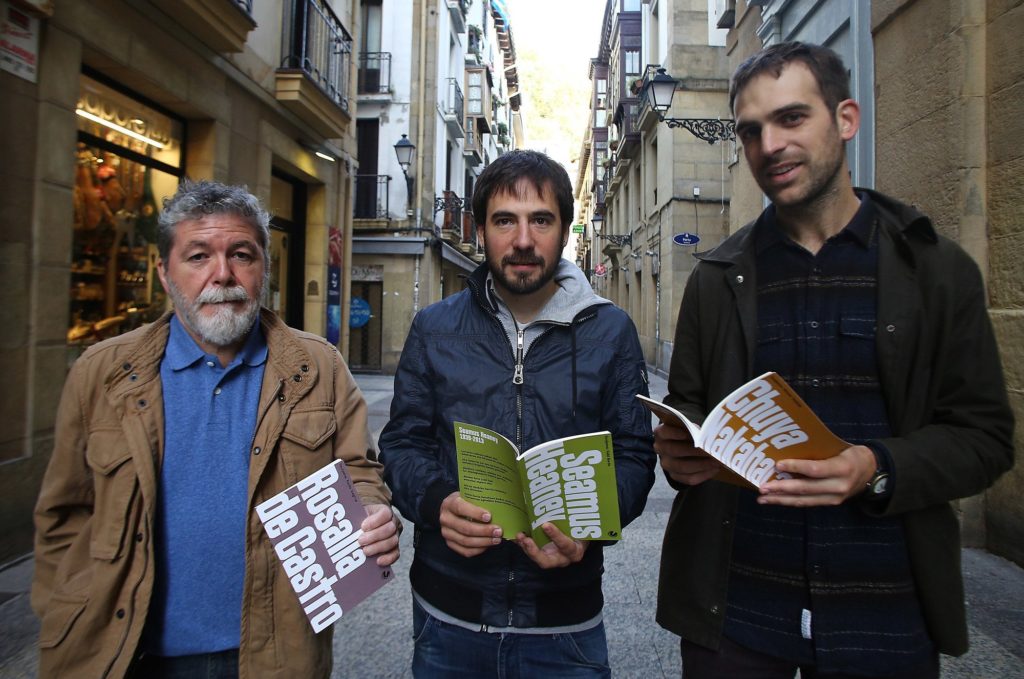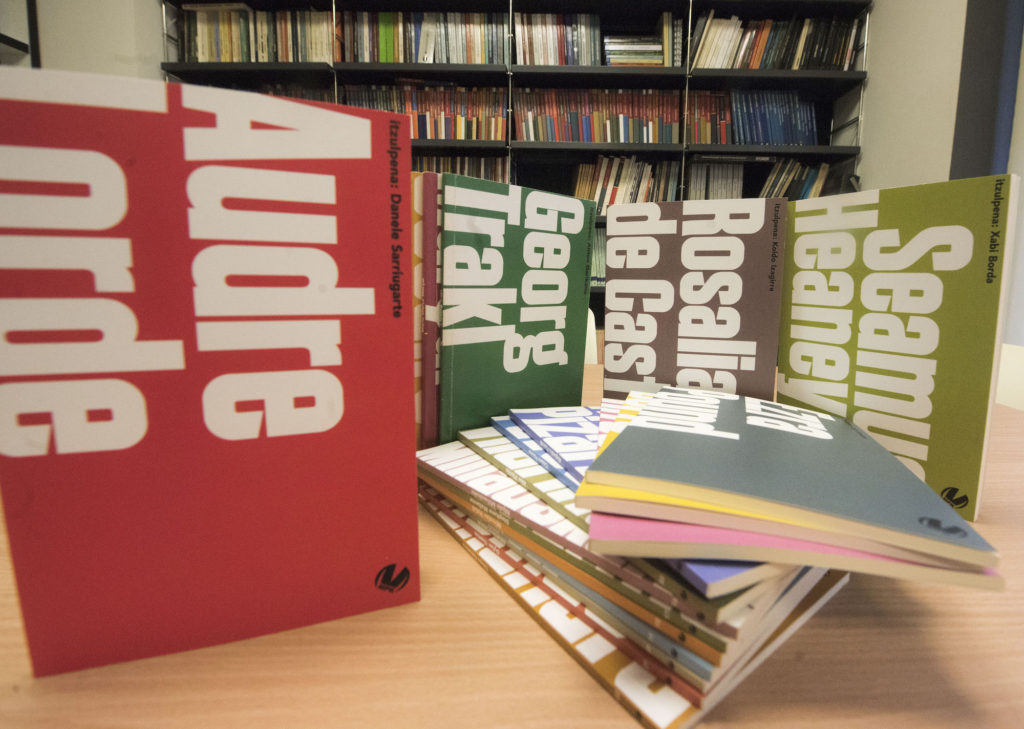To bring, piece by piece, poetry written in other languages of the world, to Basque. That is the objective of Munduko Poesía Kaierak (Booklets of Poetry of the World) with this short anthology of 64 pages in paperback. The project was presented by members of the Susa publishing house on March 21, 2014, coincidentally, World Poetry Day. The collection began with the writings of Georg Trakl, María Merce Marçal and Aimé Césaire and numbers 29 and 30, the anthologies of the Italian Cesare Pavese and the Uruguayan Idea Vilariño, have already been presented.

With the above pieces, the project has now reached five-years. And with both the anniversary and the milestone of reaching a solid number like 30, it has encouraged them to stop and evaluate things. In the opinion of the editor of the booklets, Beñat Sarasola (Donostia, 1984), “We intend to continue with the project, but also to take a retrospective look, to see what we can improve.”
This glance towards the past led Sarasola to the years 2002-2004, when writer Koldo Izagirre (Pasaia, Gipuzkoa, 1953) edited XX. Mendeko Poesía Kaierak (20th Century Poetry Booklets). “Izagirre compiled anthologies of Basque poets and the Susa publishing house project set out to do something similar, but with translations of poets from around the world.” Still, the idea didn’t materialize for years and wasn’t carried out until 2014. There was very little poetry translated into the Basque language from other languages and what little existed was in magazines and quite scattered. This is why he decided to roll up his sleeves and get to work, “There was a real need for a comprehensive project dedicated to poetry.”
Dedicated to universal literature rather than just to poetry, in 1990, EIZIE (Association of Translators, Correctors and Interpreters of Basque Language) started a collection of universal literature with Gulliver-en bidaiak (Gulliver´s Travels) by Jonathan Swift. They’ve already published 175 works, but very few of poetry, Sarasola underscored. “When we started our project, in 24 years of being up and running, there was only one work of poetry translated.” This is where the people at Susa saw a void that they could fill and wanted to fill it. And that’s how they began with the collection. “We didn’t place any kind of limitations: geographical, chronological, or linguistic.”

But there was one single limitation which was substantial: “We don’t have the budget nor the resources devoted to the collection of universal literature managed by EIZIE.” That’s because that collection has relied on the collaboration of the Basque Government since its beginning. “As a result, our approach is more modest. We have some very high-quality publications, but only 64 pages in length. We cannot contract projects as we’d like. We’re not able to pay a translator to translate for us for six months. Our translators charge symbolic amounts for their work, and we are able to pull all of this off thanks to sheer will. Here, nobody gets paid.”
The starting point of the booklets is usually the passion or enthusiasm felt for a particular poet. Sarasola usually contacts the translators according to the languages they are specialized in and according to their preferences. “I tell you that there has been very little poetry translated from certain places, I point the translators toward a certain literary tradition, and from there, we ask them to propose to us what they would like to translate.”
Without a doubt, the response has been wonderful. On the list of translators of the booklets of this collection are professional translators, significant names among writers of different generations, from veterans to younger ones: Luigi Anselmi, Iñigo Aranbarri, Leire Bilbao, Itxaro Borda, Harkaitz Cano, Koldo Izagirre, Anjel Lertxundi, Danele Sarriugarte… Translations have been carried out mainly from English and from Spanish. Some of the poets translated are, among others: Emily Dickinson, Carlos Drummond de Andrade, Nijole Miliauskaite, Miguel Hernandez, Anne Sexton, Sophia de Mello, Gabriel Ferrater, Ingeborg Bachmann, Audre Lorde, Paul Celan, Alfonsina Storni, Ezra Pound… Yet, in the Munduko Poesien Kaierak there are no African poets at the moment, although they have several on the agenda. “However, from Asia we translated Chuya Nakahara. We’re certainly trying, but we have our limitations. We don’t have a preset list. Of course, we would like to publish an anthology of the most important poets, but we are also interested in presenting those who are outside the mainstream. We’d like to translate from as many languages and literary traditions as possible.”

All this, thanks to the 160 subscribers who support the collection, because this is the main support of this window open to the poetry of the world. “Thanks to them we are economically self-sufficient. Having secured those 160 subscribers is imperative for us. We also sell in stores, but it’s just a drop in the bucket. At these small proportions it’s difficult to establish ambitious objectives.” But they’re pleased, because little by little they’re bringing known poets to Basque and making them known to new people. “This is consistent with the importance that the Susa publishing house has always given to poetry, as it contributes to working and developing poetic language in Basque.”
If all goes well, the upcoming booklets will be dedicated to the poems of Louis Aragon and John Berger. And there will be more. Sarasola says, “We intend to continue until we’re exhausted.” And apparently, they’ve only just begun to stretch their muscles.


Be the first to comment on "An Open Window to the Poetry of the World"